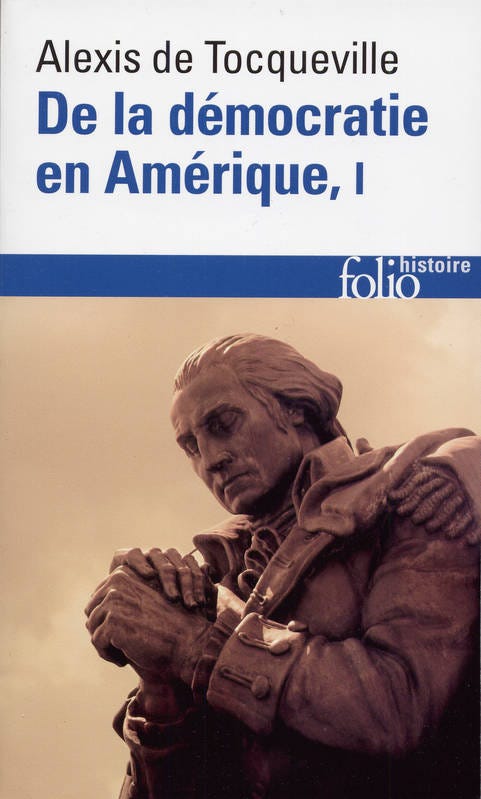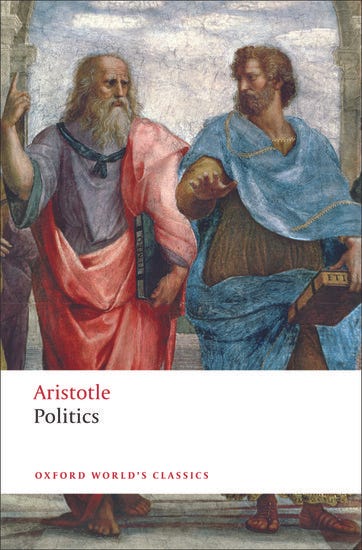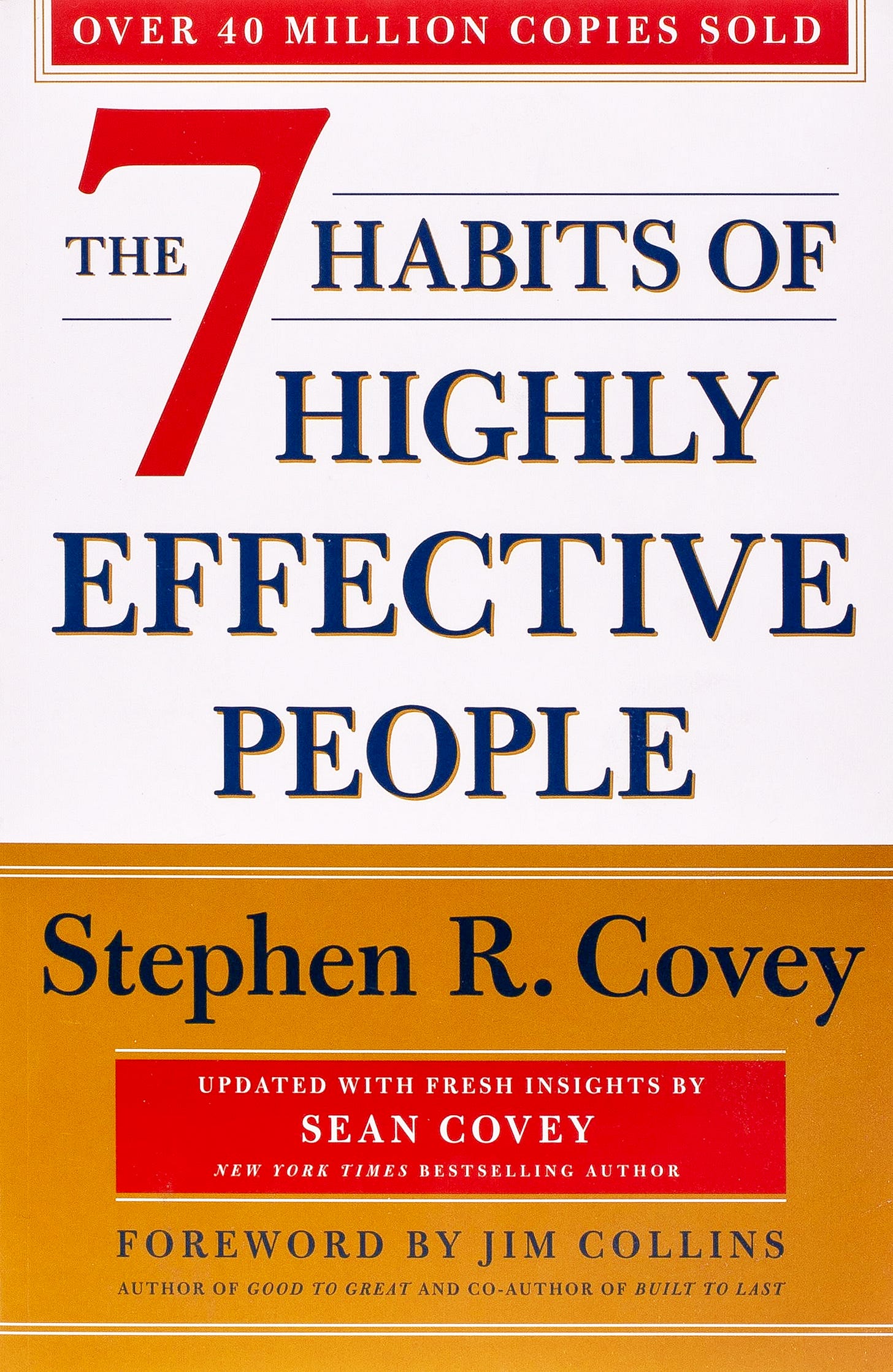5 Great Books on Politics & Government
As far back as my studies of history and politics at the University of Liverpool, I have aspired to combine intellectual understanding with political action. Today, having worked for over a decade in journalism and public affairs, I’d like to look back at some of the books that have resonated most with my experience.
Books can provide both inspiring models of past leaders and a sense of the big picture. Leadership involves the ability to give meaning to day-to-day action by setting it in the context of the big picture. With that in mind, here are my five favorite books on politics and government; books which I think any college or even high-school student interested in these issues may understand and benefit from.
1. Alexis de Tocqueville, Democracy in America
Alexis de Tocqueville’s study of American democracy is rightly considered a classic on both sides of the Atlantic. Despite being written in the 19th Century, Democracy in America continues to have relevance for two major reasons:
What he calls the “democratic social condition” is the basic reality of our modern mass societies since the 1800s, marked by the growth of official democracy/egalitarianism and individualism.
Like it or not, “We’re all living in Amerika.”
Tocqueville’s work is a meditation on many things: the spirit and practice of the American Constitution, race and slavery, the separate but convergent trajectories of America and France, the political power and social weakness caused by a strong, centralized State in France, and the incredible social dynamism and growth of democratic liberty in America.
Tocqueville acknowledges that the modern democratic tendency is inevitable even as, as a French aristocrat, he cannot be wholly happy about it. He laments the essentially middlebrow and downward tendency of American/democratic culture. The only “aristocratic” check he can identify in American democracy is lawyers.
Written before Abraham Lincoln established federal supremacy during the Civil War, Democracy in America also contains reflections on the fragility of the early United States which may be relevant to Europeans considering their own Union.
2. Aristotle, Politics
Aristotle’s Politics is the foundational work of Western political science1 and remains as readable and relevant as ever. Far from the abstract speculations and minute prescriptions of Plato, Aristotle focuses on describing the astonishing diversity of Greek civic politics in practice. This empiricism is in itself an education in respect for the legitimate diversity of states: the best regime will indeed differ according to time, place, and people.
Unlike so much premodern political philosophy, Aristotle does not ground his prescriptions in basically unfalsifiable theological or metaphysical claims. Rather, he turns to biology: what is the nature of the human species? Given that our nature is social, it follows that we must organize ourselves collectively, that is engage in politics. How then can politics enable human survival and flourishing (εὐδαιμονία), that is the exercise of our highest capacities? For Aristotle, these capacities include moral excellence and reason.
Aristotle’s biology - which was cutting-edge at the time and grounded in ample empirical study of wildlife - can be usefully updated with modern Darwinism and the life sciences of human nature (evolutionary psychology and behavioral/population genetics). I recommend the excellent Oxford World’s Classics edition of the Politics, which provides plenty of helpful context and explanation in its introduction and endnotes.
3. Lee Kuan Yew, From Third World to First
This is the best book on the realities of government since 1945. Older works can hold timeless truths, but these can be difficult to apply directly in our times.
Lee Kuan Yew’s memoirs are the fruit of over three decades in power as the prime minister of Singapore. Despite facing severe political constraints - Singapore starting out as a small, insecure, impoverished island city-state surrounded by hostile powers - Lee was remarkably effective. Not only was peace and order preserved, but individual Singaporeans went from living on around $500 a year in 1965 to $55,000 upon Lee’s death in 2015, wealthier than most Western countries. Singapore went from being a British imperial entrepôt to a global hub for trade, investment, and innovation.
Lee’s memoirs are a masterclass in how to achieve stability, good government (anti-corruption, meritocracy, relentless maximization of human capital), prosperity, and social and racial harmony. His approach was decidedly pragmatic, realist, and indeed unsentimental. While other postcolonial countries were engaging in demagogic anti-Western rhetoric and often counter-productive anti-capitalist experiments, Singapore embraced ties with Britain, Japan, America, and multinational corporations in general. This secured much-needed foreign investments and transfer of technology and skills.
Domestically, Lee frankly rejected Western liberalism as causing instability, division, and short-sighted policymaking. His foreign policy however arguably embodied a liberal realism which reflected the best of the era of globalization: international trade and investment with other southeast Asian economies (notably with the creation of ASEAN), America, and China were all maximized to raise standards of living and foster interdependence, peace, and mutual understanding.
Lee’s intellect, skill, and forcefulness shine through in his memoirs, which also serve as a tour of the postcolonial world and an excellent introduction to the politics and mentalities of east and southeast Asia.
4. Stephen Covey, The 7 Habits of Highly Effective People
What does a book of 1990s consulting and self-help have to do with politics and government? The truth is Stephen Covey’s classic, while packaged for the business world, is full of wisdom relevant to government work and indeed life in general. Consider the first five habits:
Be proactive: Realize you have agency and can respond more constructively to whatever happens. Focus on what you can do, your Circle of Influence, rather than complaining about things beyond your control. (Focusing on constructive action within your Circle of Influence will, incidentally, naturally enlarge it.)
Begin with the end in mind: Determine your values, life priorities, and roles that matter to you. Imagine your own funeral three years from now: how would you wish to be remembered?
Put first things first: Plan your time on a weekly basis around your chosen roles and values. Start with the “big rocks,” your top priorities, and fit the rest around them.
Think win-win: Commit to finding solutions that benefit both yourself and others. This includes expressing your own needs and views with both personal courage and consideration for others.
Seek first to understand, then be understood: Listen to others so you understand them both emotionally and intellectually; refrain from projecting your own autobiography onto them.
It’s not hard to see that these habits are not just narrow techniques but general purpose steps that can be useful in just about any context. In particular for civil servants and public affairs professionals, 7 Habits is invaluable for promoting effective dialogue, positive feeling among colleagues, and political direction.
Covey was in his late 50s by the time he hit the bigtime with the best-selling 7 Habits. The book is the fruit of a lifetime of teaching and consulting, the reading of 200 years of American success literature, and Covey’s own religious experience. As such, many of Covey’s habits and principles really reflect timeless wisdom going back to Socrates.
Habit #1 for example, particularly its focus on the Circle of Influence and detachment from outcomes, is pure Stoicism. But whereas traditional wisdom - e.g. Stoic or Buddhist - may lead to a somewhat fatalistic philosophical detachment reflecting the grim realities of premodern life, Covey shows you how you can apply such wisdom to lead a vigorous and engaged life in the modern world.
The seven habits are remarkably balanced, combining a very Anglo-American emphasis on individual conscience, choice, and personal effectiveness, with an acute awareness of our fundamental interdependence and thus the need for cooperation and altruism.
The book also provides a lot of insight into the origins of buzzwords that have become commonplace in business: win-win, synergy, mission statements… It’s easy to be cynical about these but, knowing where they come from and their original utility, it becomes easier to work with them and use them productively.
Covey incidentally practiced what he preached, living life to the fullest, having no less than nine children with his wife Sandra, and dying after a mountain biking accident at the ripe old age of 79.
5. Charles de Gaulle, War Memoirs
For many, and not just in France, Charles de Gaulle is the ultimate democratic and patriotic statesman. His political depth and verve are already evident in the classic little work of his youth, The Edge of the Sword, a vigorous defense of the role of military leadership written in the wake of the First World War. Even better for me however are de Gaulle’s War Memoirs, because this book shows le Général’s leadership in action throughout the Second World War.
You will be hard-pressed to find a political leader who achieved so much, for himself and his country, with such abjectly miserable means. When Marshal Philippe Pétain capitulated to Hitler in June 1940, de Gaulle was but a renegade two-star general. Exiled in London, only a handful of self-styled “Free French” and marginal colonies in equatorial Africa rallied to his cause.
This junior general, astonishingly, claimed to represent France herself. De Gaulle crafted a very particular political line: antifascist, anti-parliamentary (the Third Republic being synonymous with decadence and defeat), and absolutely uncompromising in asserting the unity and independence of all French territories… under his leadership. The latter he pursued with ruthlessness, leading to constant conflicts with the British, the Americans, and other French - whether parliamentary politicians or other military officers - who were ever-encroaching on Free French authority.
De Gaulle justified his authority on the grounds that only he, his Free French, and the Resistance had unfailingly fought on the side of the free world. Only those who had spilled their blood and never compromised with the Axis were worthy of leading France and what she represents in terms of human culture and freedom. Only if France were united and sovereign under such leadership could her confidence and self-respect as a great power be restored in the postwar world.
In American terms, de Gaulle’s mottos would be: fake it till you make; go big or go home!
The War Memoirs contain many beautiful passages, such as the famous opening meditation on de Gaulle’s “certain idea of France,” the portraits of various leaders (Churchill, Gamelin, Giraud…), vignettes (the political chaos of defeat in 1940…), or the philosophical conclusion on his postwar retirement in his village of Colombey-les-Deux-Églises, à la Cincinnatus.
However, the greatest value of this book is in showing, in sometimes tedious but instructive detail, the humble reality of day-to-day political action. We see de Gaulle visiting his subordinates in the empire, giving speeches, maintaining ties with the Resistance, and, above all, stubbornly asserting his political line in the face of outside pressures, in meeting after meeting after meeting. It is a sad fact, but one likely typical of the realities of leadership, that the book is perhaps one part fighting the Germans and Vichy for nine parts “politics” struggling with allies.
In the event, despite miserable means, devastating setbacks, and fluctuating circumstances, de Gaulle’s approach massively paid off in 1943-44 as he won undisputed leadership during the Liberation and France was restored among the victorious powers of the Second World War. De Gaulle’s War Memoirs are a great education in the virtue of Constancy. “Luck” is indeed when preparation meets with opportunity.
P.S.: Believe it or not, Emmanuel Macron chose to have one book open on his desk for his official presidential portrait: the War Memoirs.
Previous political science work had of course been done by the historians Herodotus and Thucydides, both of whom are also very much worth reading.






